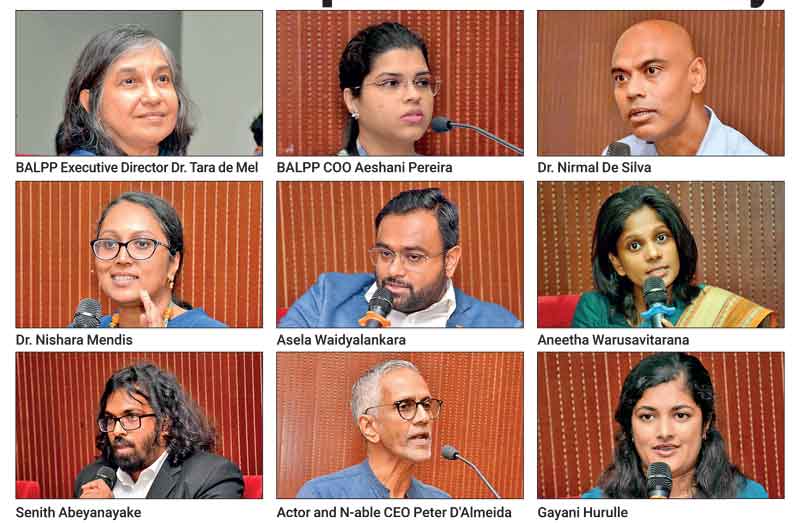Wednesday Feb 18, 2026
Wednesday Feb 18, 2026
Thursday, 10 October 2024 05:50 - - {{hitsCtrl.values.hits}}

By Divya Thotawatte
In a significant step towards fostering change in the country, Bandaranaike Academy for Leadership and Public Policy (BALPP) recently introduced its inaugural Executive Credential in Leadership and Public Policy (ECLPP), a one-year program for emerging and mid-career professionals.
ECLPP, designed for professionals aiming to work in Government, corporate, non-Governmental and other sectors, provides a comprehensive understanding of leadership, public policy analysis, and implementation. It features insights from over 40 distinguished scholars in Sri Lanka’s leadership and public policy arena. The program commenced on 6 October where lectures were held at the BALPP premises at BMICH.
Speaking at the inauguration, BALPP Executive Director Dr. Tara de Mel said: “Today’s event marks an introduction to a very novel course that is currently not being offered in most of the tertiary education institutions in Sri Lanka. Modern governance and policy making are both components of this new course. It represents a significant milestone in our mission to equip students with knowledge and skills required to navigate the complexities of ethical and strategic leadership.”
“The course is tailored for those who aspire or are already in leadership roles, who seek to enhance their strategic decision-making and leadership capacities, and policy expertise. The objective of ECLPP is to contribute towards nation building, particularly at current times, by helping with development and economic growth of the country,” explained de Mel.
“Participants will benefit from engaging with some of the top minds in the country on public policy and leadership, both locally and internationally. We will ensure that our graduates lead with a global perspective, ready to influence policy decisions and to lead effectively in any environment, be it the government or the non-government sector.”
With lecturers from diverse fields; from academia, industry and the corporate world, the first semester covers leadership skills and public policy development, while during the second semester, students will choose one elective to engage in an intensive study on a subject of their choice. The electives are on key policy areas such as Economic Policy, Education Policy, Emerging Technologies and Cybersecurity, Environment and Climate Resilience, Renewable Energy policies and Health Policy. Additionally, all students will be given a nearly 10-week Capstone Project opportunity after the completion of the second semester.
In tandem with the launch of ECLPP, BALPP also unveiled the inaugural issue of the BALPP Policy Tribune, a publication featuring insightful policy briefs and articles from both local and international contributors. The policy tribune covers topics such as social justice in secondary education, the challenges of countering disinformation, and sustainable waste management strategies in Sri Lanka. The issue is available for download on the BALPP website (www.balpp.com).
Actor and N-able CEO Peter D’Almeida was the event’s keynote speaker who stressed that the country’s context is critical when discussing leadership and policies. “We are a country that’s bankrupt. You have no money to invest in the future. That is frightening because no organisation or country can survive if you are not investing in the future. Look at our health care. It’s falling apart. Look at our education. You need resources. Who’s going to teach the next generation? All these academics decide to push off to whatever country they want to work. So we lost education, nutrition.”
He attributed these issues to the lack of proper leadership in the country and poor Government policies, which he said suffer in terms of design, contextualisation and implementation. He also emphasised that policy was not just about written documents, but also about the choices a Government makes or avoids; “It is whatever the Government chooses to do or not to do. What you don’t do is also a policy.”
D’Almeida also criticised the absence of consultation in policy formulation and implementation in Sri Lanka, contrasting it with practices in countries like China and Singapore.
Stressing that effective policy-making is rooted in practical understanding, he further emphasised the critical need for policy-makers and academics to engage directly with the communities they intend to serve. “Lots of people write about farming and agriculture, but how many people have gone into the fields? Public policy comes out of solving public problems, mobilisation, social consciousness, and be a part of this in whatever field you choose.”
- Pix by Upul Abayasekara